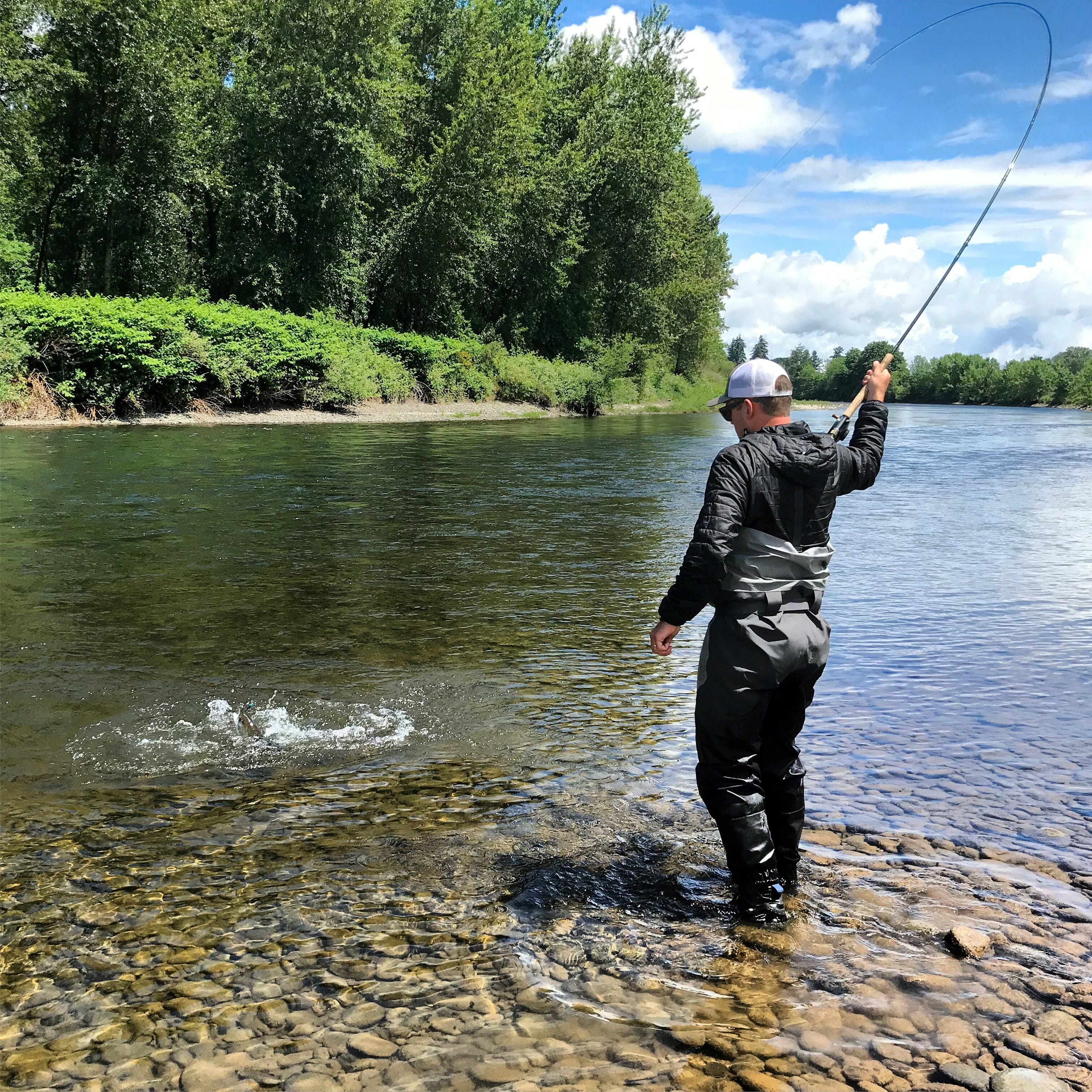By Kyle Smith
For the past month, residents of Salem, Oregon (I’m one of them) have been warned against drinking water from our taps and have been advised to obtain drinking water commercially or from a number of water fill stations set up across the city by Salem’s Public Works Department.
Salem’s drinking water comes from the North Santiam River, which flows out of Detroit Reservoir. This impoundment is formed by Detroit Dam high in the Cascade Mountains. With its cascading whitewater, towering Douglas Firs, and runs of Chinook salmon, steelhead, rainbow and coastal cutthroat trout, the North Santiam isn’t the kind of water source that comes to mind when thinking of polluted, undrinkable water.
But that’s been the reality for residents of Salem since May 29th of this year, when officials found the city’s water supply contained concentrations of cyanobacteria in excess of recommended guidelines for human consumption. Cyanobacteria is the result of toxic blooms of blue green algae (also known as HABs — Harmful Algae Blooms) in Detroit Reservoir.
Salem Weekly breaks down the current issue on the North Santiam, its potential causes, and what it means for residents of Salem and the Pacific Northwest more broadly in this article. Among the factors that have degraded water quality in Detroit Reservoir and led to the current situation are timber practices and the warming climate.
It’s easy to take the stuff that comes from your tap for granted. But when the ability to deliver clean drinking water with the turn of a wrist is taken away, one begins to ponder the unintended consequences of our actions and what they mean for future generations.
As coldwater conservation advocates, TU members know well the importance of clean, cold water for salmon, trout, and steelhead. The water quality situation on the North Santiam underscores the fact that the wellbeing of these fish is tied to ours — what’s best for salmonids is also critical for humans and other species, here in the Pacific Northwest, and beyond.
Kyle Smith is TU’s Oregon Field Coordinator.



